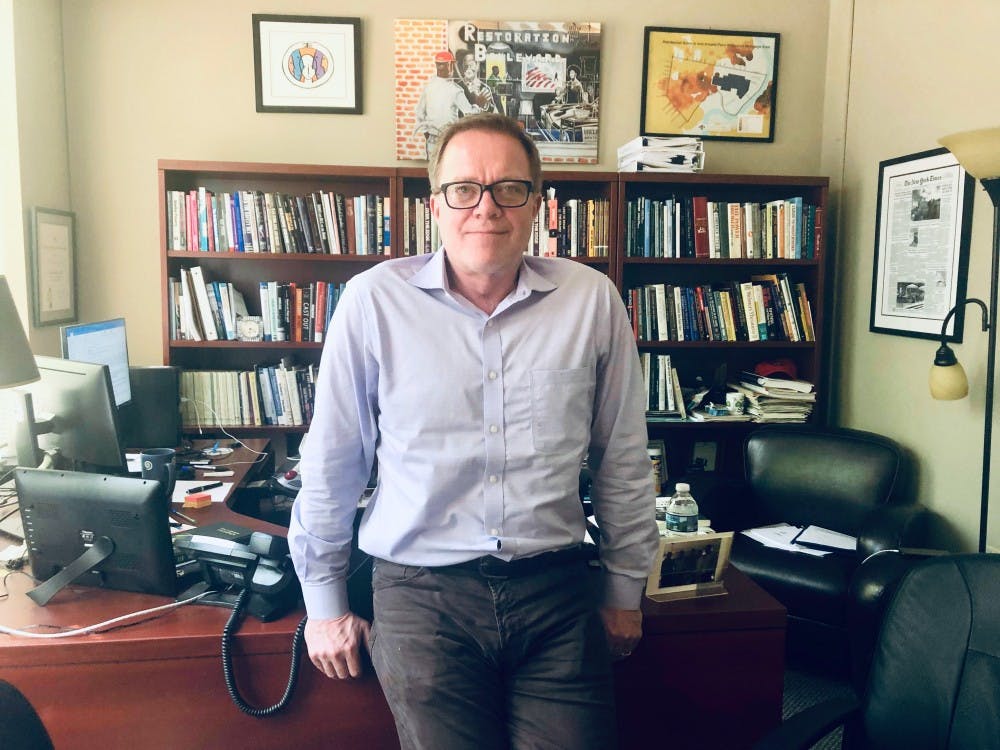
Penn researchers found that a Philadelphia pilot program shows potential for mitigating homelessness and the opioid epidemic.
Dennis Culhane, a professor in the School of Social Policy & Practice, and David Metzger, a psychiatry professor in the Perelman School of Medicine, led a study of the Encampment Resolution Pilot, an eight-month long initiative to close homeless encampments and offer social services to evicted residents. The city's ERP program closed two of the four major homeless encampments in Kensington, a neighborhood with high rates of opioid use, according to the report.
The ERP report, released in March, analyzed the planning process, the implementation process, and ongoing citywide efforts to serve those displaced from the encampments. The team of five Penn researchers used interviews and surveys to track the outcomes of individuals removed from the two encampments in spring 2018. At the end of January, all four encampments in Kensington were cleared.
Culhane said getting people into long-term housing remains a big challenge for the city. Still, Culhane said the project was a necessary first step.
Between 2015 and 2017, drug overdoses killed 2,826 people in Philadelphia. And with homelessness and opioid overdose rates in Kensington both on the rise, Mayor Jim Kenney declared a state of emergency in the Kensington neighborhood in October 2018.

Professor Dennis Culhane of the School of Social Policy & Practice has studied homelessness for more than three decades.
In their report, the researchers highlighted a key priority of the pilot as increasing access to public services for those evicted from the targeted encampments, where mainly native Philadelphians lived. Liz Hersh, director of the Philadelphia's Office of Homeless Services, said in the month before the closures on May 2018, people living in the encampments were frequently offered resources like on-site medical aid for opioid addiction and spots in city shelters. These services were offered without requiring ID or drug tests, Hersh said.
A major and complex part of ERP was relocating people who were targeted by the program. Some went to private recovery houses, while others entered public shelters.
For now, Hersh said the pilot program presents the most favorable model for cities dealing with similar issues.
“We have an epidemic on our hands,” she said. “We’re doing everything we can think of to keep people alive.”
Responding to arguments against encampment clearings, including the displacement of communities, Culhane said the encampments are "an unhealthy communal adaptation to a failed system."
Culhane, who has studied homelessness since the 1980s, said he believes we have the tools necessary to end homelessness.
“Homelessness represents a really unique vulnerability,” Culhane said. "We're such a wealthy and rich society, we're such a smart society. We shouldn't have people who are destitute."
The Daily Pennsylvanian is an independent, student-run newspaper. Please consider making a donation to support the coverage that shapes the University. Your generosity ensures a future of strong journalism at Penn.
Donate



